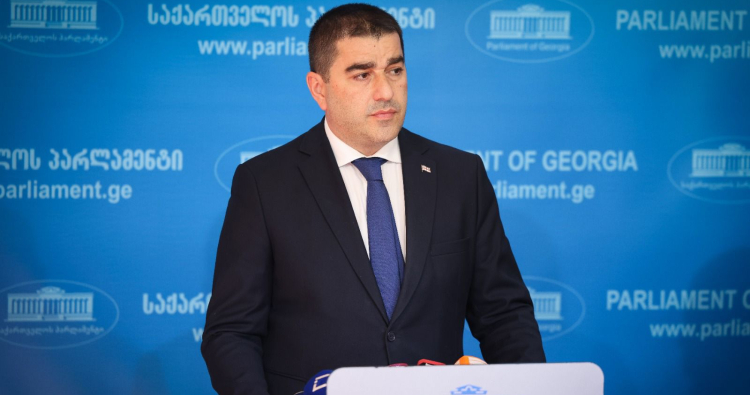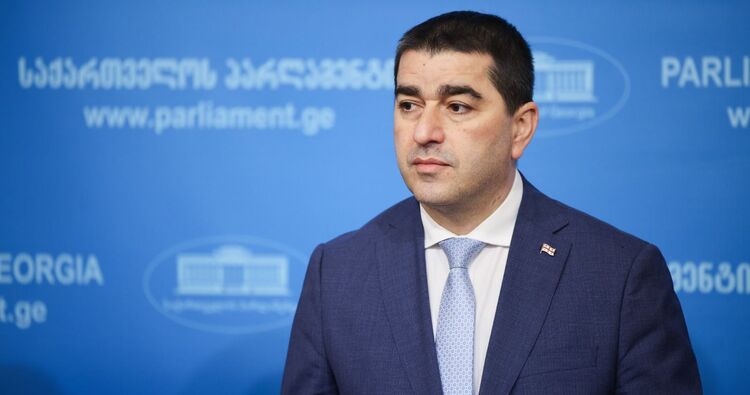Parliament Speaker claims protests against transparency bill aim to “suppress discussion, stage violent scenes”

Papuashvili also said there was “no alternative” to non-violent protest and added violence was “not allowed either individually or collectively”. Photo: Georgian Parliament
Georgian Parliament Speaker Shalva Papuashvili on Tuesday claimed the aim of public protests over the controversial domestic bill on transparency of foreign influence was to “suppress discussion and stage violent scenes”.
Papuashvili was responding to the rally outside the Parliament in capital Tbilisi on Monday, where law enforcement arrested 14 protesters who had gathered against the draft law that calls for registration of non-commercial legal entities and media outlets in the country as “pursuing the interests of a foreign power” if they derive more than 20 percent of their funding from abroad.
The lawmaker said his claim had been demonstrated in the “violent attack” on Mamuka Mdinaradze, the head of the ruling party in the Parliament. Mdinaradze was assaulted by Aleko Elisashvili, the leader of the Citizens opposition party, during hearings of the bill in the Parliament’s Committee on Legal Issues.
The Parliament Speaker extended his gratitude to law enforcement officers for their “professional behaviour” at the rally, and noted one officer had been injured in the clashes leading to the arrests.
The rally was going on and this is freedom of expression, no one is preventing them - on the contrary, the police wanted to preserve the peaceful nature of the rally [and their] safety - but then we saw what happened. There was an attempt to picket”, he said.
The police told them not to block the side streets in order not to endanger the activities of the Parliament. There was an attempt to put pressure on the police so that there would be incidents”, the official added.
Papuashvili also said there was “no alternative” to non-violent protest and added violence was “not allowed either individually or collectively”.
The reintroduction of the bill by the ruling party has been met by criticism from the domestic opposition, non-governmental sector and some of Georgia’s foreign partner governments and diplomatic representations in the country.
 Tweet
Tweet  Share
Share



